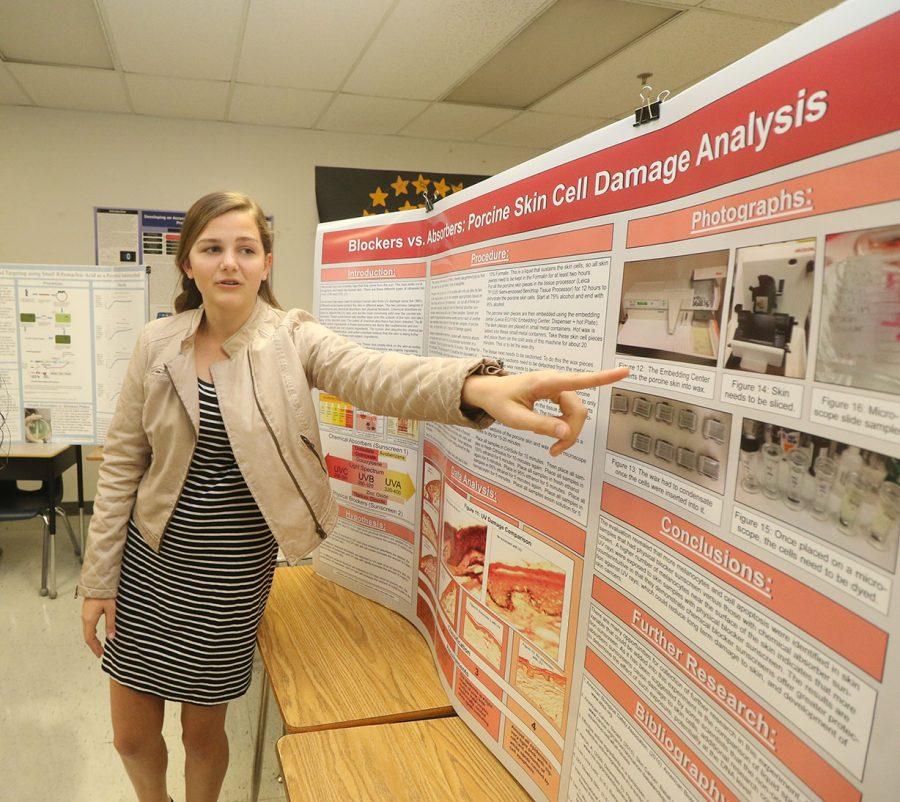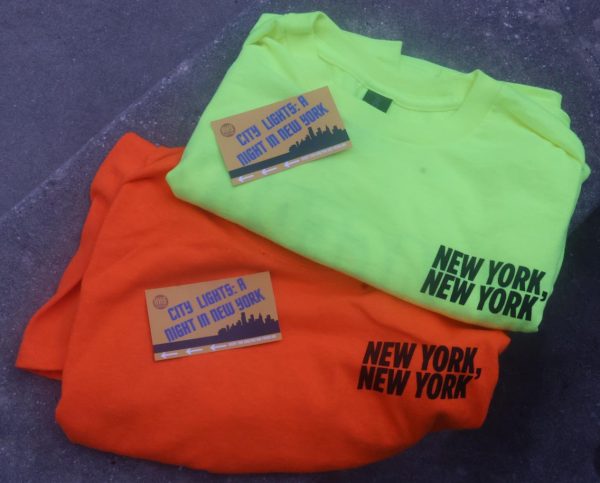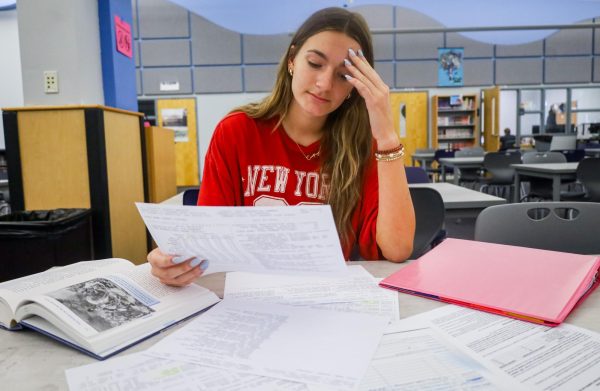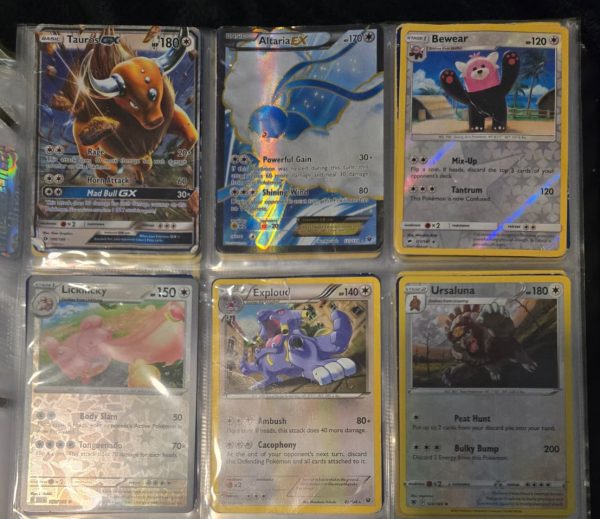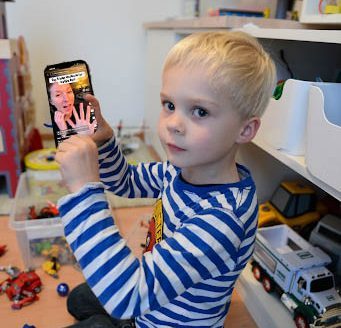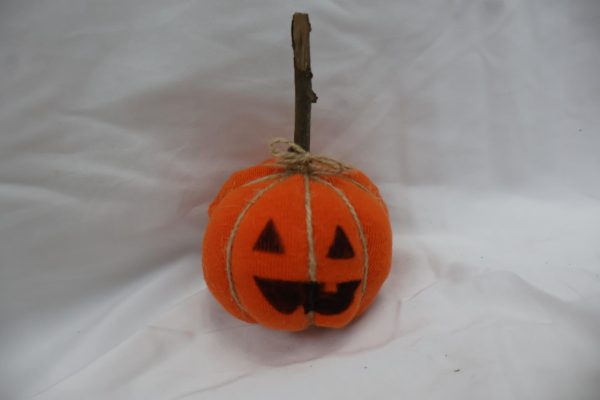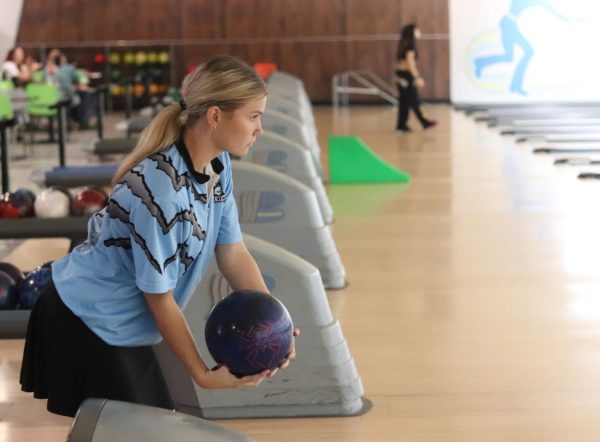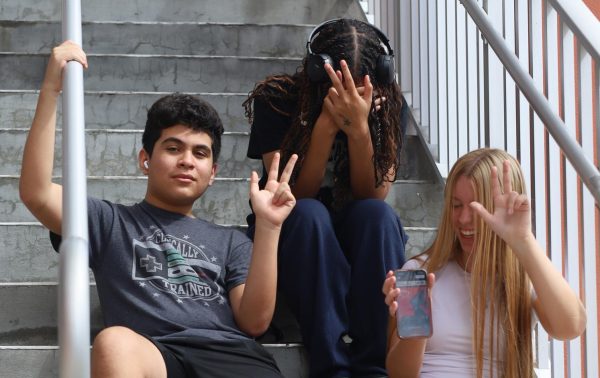Fresh meat
photo by Jacob Arthur
Freshman Reagan Pomp is not new to the science world. However, in a class full of juniors and seniors, Pomp has had to learn to adapt in Sarah Evans’ Experimental Science class and also how to employ her knowledge of local and national Science Fairs to further enhance her career in biomedicine.
Pomp had never been interested in participating in the science fair until middle school, where conducting an experiment and writing about it was mandatory. When Pomp discovered she was eligible for the State Science Fair in sixth grade, her determination to continue her experiment grew.
“I knew she was coming into my class since she was in sixth grade,” Evans said. “We personally recruited her.”
With her knowledge of science fairs and her willpower to continue in a science career, obtaining her as a part of Evans’ program was nearly vital. However, entering as a freshman and being put in a class with only juniors and seniors initially made Pomp wary.
“It was difficult at first because I hadn’t learned the fundamental science courses that the seniors had taken already, but I got the hang of it pretty quickly,” Pomp said.
In order to keep up with the class and the upperclassman within the classroom, Pomp studied basic science online when she didn’t understand concepts and looked to the seniors for guidance throughout the year.
With Pomp in Experimental Science, her experimental research has more than doubled since middle school. Pomp’s experiment included challenging components, such as a fresh pig skin, and tools that the school’s labs do not provide like an enhanced microscope strong enough to see the smallest of cells.
The project studies which type of sunscreens prevent the most damage from the sun, using the two types of sunscreens that the general population uses: physical blockers and chemical absorbers. Chemical absorbers, which do not use organic ingredients, are the most common, while physical blockers, which reflect the harsh sun rays, are often picked over chemical blockers since they only use natural ingredients.
Pomp used freshly slaughtered pig skin, only preserved for about two hours, because of the similarity to human skin, and put sections of skin with different sunscreens under various rays of light for 60 minutes. After letting the sections sit, she studied each piece under a microscope and calculated the damage.
Because of the lack of equipment at school, Pomp and the students from the Experimental Science class traveled to the University of Florida labs to conduct their research. Before entering the lab, each student had to take an online safety course and was appointed a mentor, a professor of the college who would guide them.
“My classmates are the reason the project is better than it has ever been,” Pomp said. “My mentor, Dr. Chin, and Mrs. Evans have helped me so much.”
Senior Lauren Nelder took part in the Experimental Science Program with Evans throughout high school and has looked after Pomp this year in order to drive her to do the same. Nelder, who is experienced in science fairs, describes the competitions as “cool” because they are not predominantly male and instead encourage all genders, races and backgrounds to compete.
“I liked [Pomp] immediately because she started out the same way I did; forced to do science fair in middle school, won something and then ended up liking it a lot,” Nelder said. “I couldn’t be more proud of her for continuing it.”
Pomp plans to remain in Experimental Science throughout her high school career even though the experiment did not qualify for the State Science fair this year and also hopes to qualify got more local and national science fairs.
“Everyone has been so welcoming and supportive,” Pomp’s mother, Shannon Pomp said. “They all contributed to her confidence in seeing this research through.”
Your donation will support the student journalists of Hagerty High School. We are an ad-free publication, and your contribution helps us publish six issues of the BluePrint and cover our annual website hosting costs. Thank you so much!

